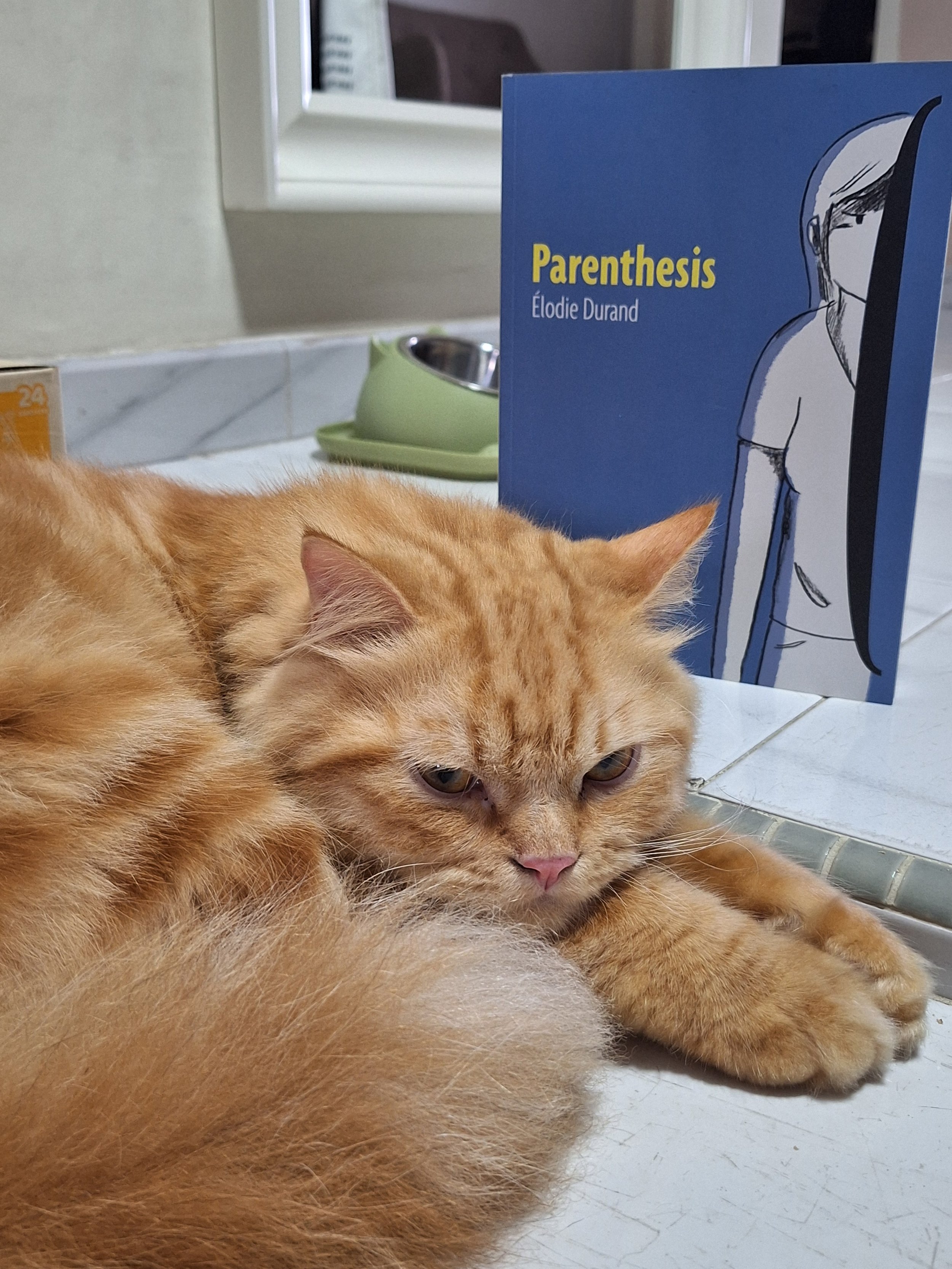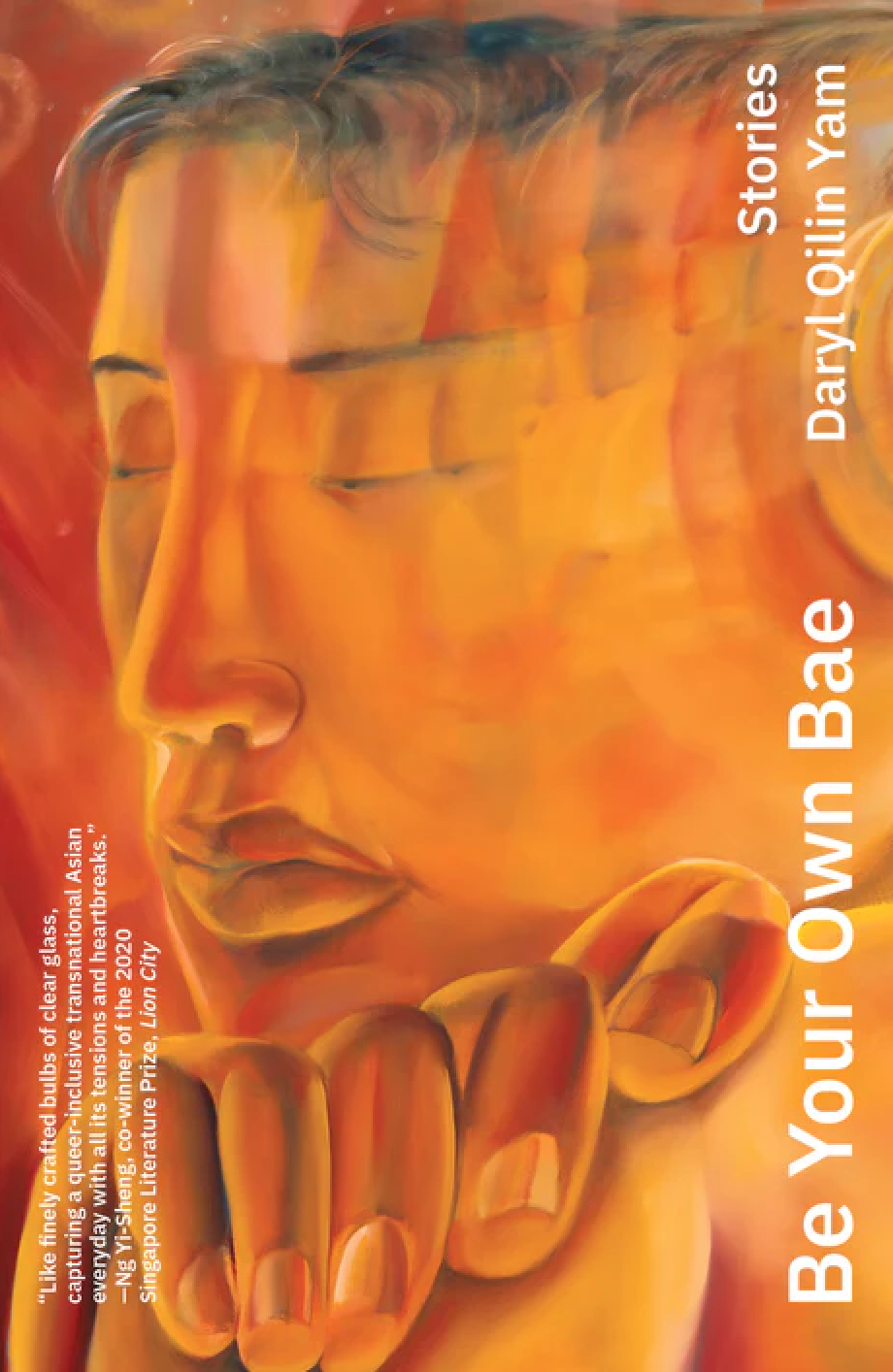As Chosen Families Frientangle
By Ashley Marilynne Wong
Review of Elaine Chiew’s The Light Between Us (UK: Neem Tree Press, 2024)
Though Elaine Chiew’s debut novel, The Light Between Us, is marketed as a time-and-space-defying historical romance, it was the book’s searching inquiry into the bittersweet beds of chosen families in all its iterations that electrobound me – heart and soul – to its well-charged character(istic) chord of kinship. Indeed, with friendship being my current readerly preoccupation, this astute work of fiction had been a chosen-familicious surprise, for the next thing I knew upon turning its pages, I – like its protagonists Charlie and Tian Wei – was plunged into a quantum entanglement of my own: one where ghosts and silhouettes of (adopted) kin past and present fused.
The Light Between Us centres upon Charlie, a photography archivist based in twenty-first-century Singapore and raised in London, and Tian Wei, a Shanghainese photographer who lived in Singapore in the 1920s. When two of Tian Wei’s 1920 letters investigating the disappearance of his adopted sister, Aiko, are misdelivered to what Charlie later dubs her quantum entanglement (QE) archival folder in 2019, the two begin corresponding as pen pals. To describe the novel as one charting the development of Charlie and Tian Wei’s romantic intimacy through their letters, however, would merely be scratching this slipstream novel’s surface. What struck me most as I perused Light’s luminous pages was how, as star-crossed lovers Tian Wei and Charlie’s letters carry their souls towards one another across the centuries, we get intimate, or rather frientimate, glimpses into the lives and platonic relationships of Charlie and her stepbrother Sebastian, and Tian Wei and his adopted sister Aiko, amongst others. If blood is indeed thicker than water, Chiew implies through her characters’ frientanglement that the metaphorical fluid that binds chosen families together may be thicker than blood. Thicker, even, than cioccolata calda (Italian hot chocolate). One particularly remarkable thickening agent that makes Light velvety, multilayered and dark-chocolaty is the author’s exploration of a chosen family within an inherited chosen family, portrayed through Charlie and Sebastian’s frientanglement. To contextualise, as a consequence of her deceased father’s past choices, Charlie has inherited two stepmothers: Cassandra and Peony; two half-brothers: Linton and Laurent, Cassandra’s sons; and one non-biological stepbrother: Peony’s son Sebastian, whom she claps eyes on for the first time at university. Charlie is indeed unaware that she and her stepbrother
”were legal siblings, or that Sebastian existed, until we happened to cross paths at the Singaporeans-at-Stanford freshers’ welcome barbecue. On the green in front of the Hoover Institution, Seb and I picked up the same plastic name-card to pin to our respective lapels—C. S. Sze-Toh. “After you,” he graciously said, to which the only acceptable reply was, “No, after you.” We proceeded to avoid each other, two suspicious Singaporeans uncomfortable with too much intimacy too soon, but the coincidence of our names hung between us like a kaypoh’s question mark, until he thrust a chicken leg with dangling crisped-up skin in my face and said, “I think I might have seen you in a family photograph.””
After Sebastian’s mother becomes Charlie’s father’s mistress, Peony changes her and her son’s surname, leading Charlie and Sebastian to have the same, which, as it happens, is not the only thing the two step-and-soul-siblings share. Another thing they – whose first and middle names are in fact Charlene Soo Ann and Charles Sebastian – share is a dislike of their first names, hence the C. S. initials, and Charlie and Sebastian. As friends and family roll to become one, the stepsiblings’ frientanglement is ingenious because, whilst Charlie does not get to choose the stepmothers and step-and-half-siblings she’s inherited from her father, the deep and fast friendship she and Sebastian form upon meeting each other seems to have sealed the two’s fate and union, and paradoxically freed them to choose each other as members of a chosen family. One all their own, no less, for Charlie’s never felt familial with her biological half-brothers Laurent and Linton, unlike Sebastian, a feeling she suspects is mutual.
The notion of the mother versus the other is also deftly explored in Light through Charlie and Cassandra’s relationship, adding more dimensions to the concept of chosen family, or rather families – with that onion of a Cantonese word, yi-ma. The word serves as a powerful device, for in Chiew’s magic wand of a pen, it transfigures into a magnificent mirror housing all that is said and unspoken between Charlie and her father’s mistress-turned-second wife.
”That day at the Japanese eatery, Cassandra had ripped apart the wooden chopsticks they provided as if they offended her, vigorously rubbing them together so that splinters flew off. She stabbed the California rolls and said, “Call me Yi-Ma or don’t call me anything at all.” Yi-Ma, or Second Aunt, which also ironically alliterates as Second Mother. I refused. Swung my heels in mute rebellion.
Father tried cajoling, then bribery with a Barbie doll, which I’d already outgrown, before finally adopting a stentorian tone. The moment became drawn out and tense; I felt everyone’s stare as if I were being prodded with acupuncture needles. I gave in.
I forced out the words, which clawed at my throat: “Yi…Yi…
Yi…Yi…Yi-Ma.”
And then I vomited out my California rolls. She leaned back in her seat, victorious.”
Triumphant Cassandra may have been, but it is ultimately Peony, Sebastian’s mother, who won Charlie’s heart and became her adopted aunt and mother figure – her surrogate yi-ma, in a way. When their fast kinship, or more succinctly, frenmily’s relationship, is formed not long after they meet in university, Charlie and Sebastian – her stepbrother with whom she shares neither parent – would often visit Peony, who was dying of stomach cancer
“at Mount Elizabeth Hospital, me bringing baskets of fruit to rot away on the windowsill, Sebastian spending evenings massaging her wrists, giving her sponge baths. The intimacy and love—I’d never seen anything like it before. Peony would hold on to my hand as Sebastian read Donne or Neruda to her, her favourite poets. Once, she said to me not to begrudge my mother: happiness comes from within, not from class, status, wealth or other externalities. It doesn’t come from being loved, it comes from a spiritual generosity that is the product of loving yourself and another without any expectation of return.”
Such generosity of spirit is not alien to Tian Wei, who, a century before Peony dispenses those gentle words of wisdom to Charlie, had repeatedly risked his own life in search of his missing – albeit unofficial – surrogate sister, Aiko. For her, he has sought help from the Ghee Hin Triad; directly confronted Aiko’s adopted father – from whom he suspects foul play – only to receive threats; sacrificed his physical and emotional well-being by visiting the mortuary when a corpse matching Aiko’s description turns up; and accepted favours from Si Nian, a prominent Kuomintang member, despite all the knotted, life-endangering strings attached. The list goes on whereas Aiko’s adoptive father risks her life to save his business interests and his own skin. Tian Wei is not merely the giver of such spiritual generosity; he, as it will be seen, is also its recipient.
To time travel further to the past, there is Sansan who, back when Tian Wei was a street urchin in Shanghai, ‘had been a sister to him and saved his life when he thought the world was a hellish place run by hoodlums and bruisers, where life was so tawdry for urchins it made Oliver Twist look like a princeling.’ She took Tian Wei under her wing after rescuing him from being attacked by a group of older boys by teaching him how to fend for himself. Later she introduced him to a photographer who subsequently made Tian Wei his apprentice. Although Sansan is just a minor character in Light – she dies before the novel begins and is introduced only as part of Tian Wei’s backstory through several flashbacks – her role in highlighting what members of a chosen family can and will do for one another could not be more significant. In portraying the nuanced nature of biological and inherited families by showing the reader how disinterested and even calculated Charlie’s half-brothers and Aiko’s stepfathers are, Chiew has managed to deromanticize the notion of blood ties, and consequently subverted relevant popular narratives and commonly held beliefs about familial bonds. Paradoxically, in that sense, each character, major and minor alike, forms an extended literary family that illuminates the complexity of platonic connections.
The book’s ultimate triumphs, however, lie not just in its portrayal of its characters and their multidimensional relationships, but most crucially in the many thought-provoking questions it asks. Open-ended and beautifully messy questions such as: is Cassandra a mother or an other figure to Charlie? Should the stepmother befriend her love rivals, Peony and Evelyn? Are Charlie and Sebastian, Tian Wei and Aiko, and Sansan and Tian Wei siblings or friends? And can star-crossed lovers separated by a century be metaphysically (fri)entangled? Exquisitely knotted questions from which I, like the greyly and gracefully frientangled chosen families Chiew has introduced me to, have learnt to embrace the light between myself and others. Indeed, all chosen family things considered, The Light Between Us could not be a more frienlightening read.
Ashley Marilynne Wong graduated with a degree in English with Creative Writing from the University of Nottingham. Her poetry and non-fiction have appeared in Spillwords and DarkWinter Literary Magazine. In 2021, she won the YOUth of Tomorrow writing competition with her poem ‘Six Ways to Expose Your Daughter to Domestic Abuse’. As an unapologetic bookaholic, Ashley tends to read for at least three hours daily.



In Taiwan Travelogue, ‘twinned souls… are at once lost, but also found, in translation.’ A review by Eunice Lim.